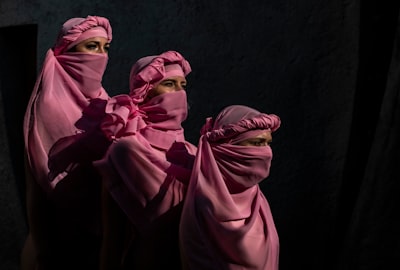Summary
The International Criminal Court (ICC) has issued arrest warrants for two senior Taliban officials: their supreme spiritual leader Haibatullah Akhundzada and their chief justice Abdul Hakim Haqqani. The charges accuse them of perpetrating crimes against humanity, specifically for gender-based persecution targeting women, girls, and those who do not conform to the Taliban’s strict gender policies. The court’s move follows widespread reports of systematic restrictions imposed on Afghan women since the Taliban regained control in 2021—barriers to education, employment, and basic freedoms. The Taliban have responded by repudiating the legitimacy of the court, claiming the action is hostile to Islam. Notably, this is the first time the ICC has issued warrants primarily on gender persecution grounds.
Analysis
The ICC’s action underscores the evolving recognition of gender persecution as a serious international crime. The specifics of the warrants remain sealed, a necessary measure given Afghanistan’s volatility and the risk to witnesses. The decision by the ICC arrives at a time when its authority is hotly debated: its jurisdiction does not extend to countries like the US, Russia, and Israel, whose leaders have also faced ICC attention, leading to allegations of selective justice and backlash against the court itself.
The underlying cause is clear: the Taliban’s policies dramatically erode women’s rights, reversing decades of slow progress. However, the court’s intervention raises consequential questions. Does external judicial pressure shift behavior for regimes that do not recognize the court? Or does it risk reinforcing narratives of Western imposition and further isolating Afghan women from international support?
The court’s defenders, like Human Rights Watch, argue urgently for robust backing of the ICC, seeing it as a beacon of hope against impunity. Critics, meanwhile, question the enforceability of such warrants without consent or cooperation from the states in question. The US sanctions on ICC judges, following scrutiny over American conduct in Afghanistan, reveal further layers of geopolitical contest over who holds the authority to define—and enforce—global justice.
Discussion
The ICC’s move is historically significant. For many, it is a sorely needed acknowledgment that the persecution of women is not an internal affair but a matter of vital international concern. In a world where gender-based oppression too often persists in the shadows, making legal accountability visible is a critical step—even if the path to actual prosecutions remains fraught.
Yet, the move is also symbolic of broader challenges: the limits of international law, the divergent global norms around justice, and the hardened resistance of authoritarian regimes to external pressure. The Taliban’s outright dismissal of the ICC—echoed by other non-member states—frames the court’s authority as optional, highlighting a core dilemma in international relations. Can universal rights be enforced in an age of resurgent nationalism and fractured global consensus?
More personally, the story is a lens into the lives and hopes of Afghan women and girls, whose struggles have now become a matter of international civilizational stakes. It is also a case study for all who care about human rights, justice, and the global tug-of-war between ideals and realpolitik. The ICC’s action, unprecedented in its focus on gender persecution, will likely influence not just Afghanistan’s future but also the direction of international norms on gender, justice, and the reach of global institutions.
The ultimate impact remains uncertain, but one truth is clear: how the world responds will say much about the practical meaning of justice and the international community’s willingness to turn condemnation into consequences.

Comments
No comments yet. Be the first to comment!